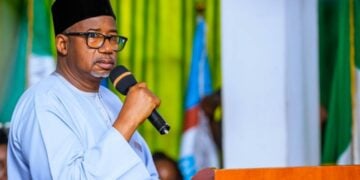Some analysts in Nigeria’s oil and gas sector have emphasised the need to optimise local content in petroleum operations to ensure sustainable growth of the nation’s oil and gas industry.
According to these analysts, the petroleum industry has long been the backbone of Nigeria’s economy, accounting for approximately 90 per cent of its export earnings and 40% of government revenue. Recognising the industry’s critical role, the Nigerian government enacted the Nigerian Oil and Gas Content Development (NOGICD) Act in 2010. This legislation was designed to enhance local participation by ensuring that Nigerian resources, expertise, and businesses play a significant role in petroleum operations.
However, despite the Act’s objectives, its implementation has faced numerous challenges that have prevented the full realisation of its potential. These challenges stem from systemic issues, entrenched business practices, and structural weaknesses within the industry.
Challenges Hindering Local Content Implementation
One of the most significant obstacles to local content development is capacity building. According to the managing director of FLT Energy, Sam Atim, Nigeria’s oil and gas sector is highly technical, requiring specialised skills that are often in short supply locally. While training initiatives exist, the pace of education and skill development has not kept up with industry demands.
He said, “This disparity between demand and local capability compels companies to rely heavily on foreign labour, particularly for advanced positions such as engineering, geoscience, and project management.”
Another key challenge is resistance from multinational oil companies (IOCs).
Industry analyst James Umeh noted that these IOCs, which have traditionally dominated Nigeria’s petroleum sector, often perceive local content requirements as costly and inefficient.
“Their resistance stems from concerns about the quality of local goods and services and the higher costs associated with engaging less experienced Nigerian firms. This has invariably led to friction between international and local stakeholders,” Umeh said.
Infrastructure deficiencies also significantly undermine local content development. According to the chairman of Ladap Oil & Gas, Gbenga Oladapo, inadequate transportation networks, unreliable power supply, and underdeveloped supply chains hinder local companies from meeting the requisite quality and reliability standards in the oil and gas sector.
Strategies to Strengthen Local Content
Oladapo suggests a multifaceted approach emphasising addressing these challenges, capacity building, international collaboration, and robust procurement strategies.
“Comprehensive training programmes are crucial in bridging the skills gap within Nigeria’s oil and gas sector. These programmes should prioritise high-demand technical areas such as drilling, exploration, and refinery management. Partnerships between oil companies, universities, and vocational schools could also help cultivate a proficient talent pool poised to enter the industry,” he said.
Also, Umeh further emphasised the importance of mentorship and apprenticeship programmes as effective knowledge transfer from expatriates to Nigerian workers.
“These programmes allow Nigerian employees to work closely with international experts, gaining hands-on experience and building their technical competencies. Additionally, it is crucial to acknowledge the ongoing necessity for international expertise, particularly in advanced areas such as deepwater drilling and offshore production. Forming strategic partnerships that facilitate the exchange of knowledge and the transfer of skills is essential for sustaining industry growth without compromising operational efficiency,” he explained.
Beyond human capacity development, investment in infrastructure is necessary to enhance local companies’ competitiveness. Upgrading the power supply, improving road networks, and developing efficient supply chain mechanisms would significantly reduce the bottlenecks that hinder Indigenous firms.
The NOGICD Act and its Impact
Despite these challenges, the NOGICD Act has yielded some positive results, particularly in expanding opportunities for local players in the industry. These achievements, according to analysts, would not have been possible without the foundation laid by past leaders in Nigeria’s petroleum sector, particularly Senator Dan Etete, who served as Minister of Petroleum Resources from 1995 to 1998 under the administration of the late General Sani Abacha.
Oladapo said, “Shortly after taking office as Petroleum Minister, Senator Etete issued a directive warning IOCs that the sidelining of Indigenous companies in favour of foreign firms would not be tolerated. This bold stance earned him recognition as a champion of Indigenous participation in the industry. During his tenure, Etete introduced policies that laid the groundwork for the marginal field bid round, which was later conducted in 2001. This policy encouraged IOCs to divest smaller oil and gas assets to indigenous investors, promoting local participation in exploration and production activities.
“Under the Petroleum (Amendment) Act No. 23 of 1996, enacted during Etete’s tenure, the Nigerian President was granted the power to declare an oil field with about 10,000 barrels of oil per day (bopd) a marginal field.
This move encouraged indigenous businesses to engage in oil and gas exploration and production.
“The Local Content Act is considered an extension of the Cabotage regime, which Etete championed, extending Indigenous participation beyond the upstream sector. Senator Etete remains widely celebrated as the Petroleum Minister who championed the empowerment of Indigenous players in Nigeria’s oil and gas sector. His legacy is evident in the increased involvement of Nigerian entrepreneurs in managing the country’s natural resources.
Before his ministerial appointment, Etete served as chairman of the Senate Committee on Petroleum and Energy in the Second Republic. He was also a member of the National Constitutional Conference between 1994 and 1995 before eventually becoming minister of Petroleum Resources.
The marginal field regime, introduced during Etete’s tenure under the Petroleum Act of 1996, led to the award of marginal field oil blocks to Nigerian investors. This development significantly contributed to strengthening local participation in the sector. Senator Etete will remain remembered as the great pillar who laid a strong foundation for building local content and Indigenous participation in Nigeria’s oil and gas industry.”











